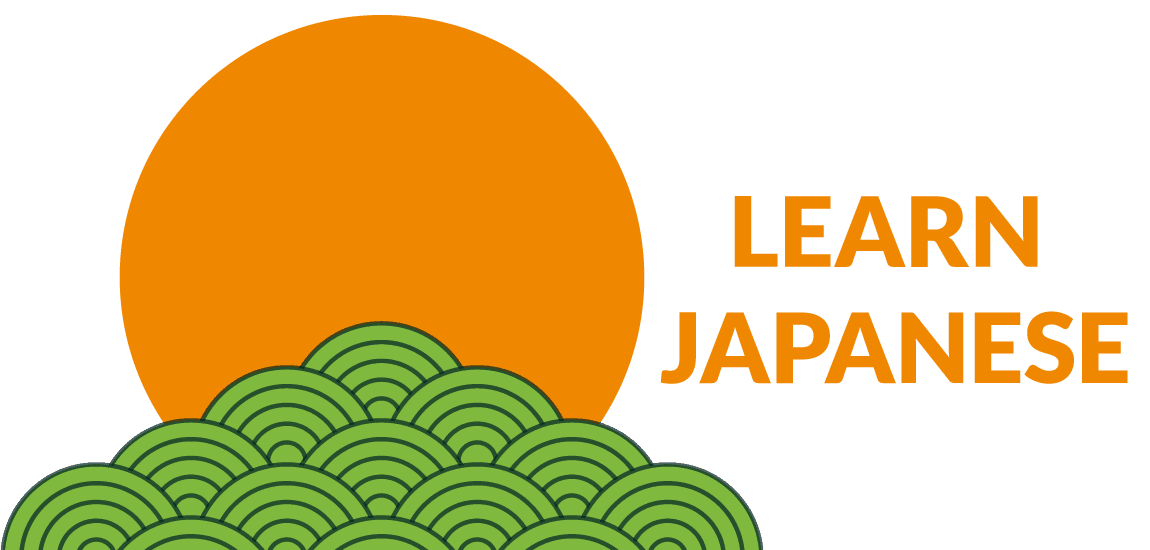
The Best Ways To Learn Japanese on Your Own
20 Jun The Best Ways To Learn Japanese on Your Own
Learn Japanese
How do you learn Japanese? Is it easy or hard? If you’re looking to learn the language, you might be wondering what the best ways to learn Japanese are. Luckily, there are lots of tools and resources available to help you master the language and speak it fluently on your own, even if you have zero experience with foreign languages. The best ways to learn Japanese are all-encompassing so that anyone can use them regardless of their skill level. Here are some helpful tips on how to start learning Japanese on your own and make sure you’re on the right track!
Discover the Language
No matter how much experience you have learning foreign languages, it can be intimidating to start studying a language you’ve never explored before. It doesn’t help that there are so many options; according to some estimates, there are almost 5,000 different languages spoken in just Asia alone! Where do you even begin? Start by trying out other online resources and seeing what works for you. There’s no one-size-fits-all approach to language learning.
Some people prefer to learn from books, while others learn best through conversation with native speakers. Still, others enjoy self-guided courses or audio lessons—or listen to music in their target language. The key is finding something that feels natural and comfortable for you, so try a few things out until you find your groove.

Study Japanese Writing Systems
The Japanese writing system is one of the most unique in the world. There are three Japanese writing systems: hiragana, katakana, and kanji. Hiragana and katakana are both phonetic alphabets, while kanji are ideographic characters. Each writing system has its unique features and is used for different purposes. Learning all three writing techniques will take time and effort, but it is well worth it for anyone interested in studying Japanese.
Hiragana is the most basic of the Japanese writing systems. It is used to write native Japanese words that cannot be written with kanji, as well as to provide grammatical inflections. Hiragana consists of a simple syllabary, with each character representing a single sound.
Katakana is another phonetic alphabet used primarily for writing foreign words and names. It is also sometimes used to emphasize or indicate that a word is used mainly. Katakana characters are more angular than hiragana and have a more staccato sound.
Kanji is the most complex of the Japanese writing systems. They are ideographic characters, each with its meaning. Kanji can be used to write both Japanese and Chinese words. In Japanese, kanji are often used in combination with hiragana to indicate pronunciation, as well as to provide additional meaning.

Find a Mentor
There are thousands of native speakers of Japanese who have taken it upon themselves to help non-native speakers (we call them teachers) learn their complex language. These teachers usually teach out of a sense of duty, culture, and family tradition. Although not free, many lessons go for about $10 or less an hour, and some programs offer special discounts for students or families. It’s best to find a teacher who matches your personality type.
Are you a visual learner? Try studying with flashcards or videos online (YouTube has tons of both). Do you prefer in-person interaction? Maybe find an immersion program that offers private classes.
No matter which option you choose, practicing with other students will continually improve your skills faster than learning by yourself. If you want to try one-on-one sessions, ask around at a local university or check sites like Craigslist and Kijiji. If you’re serious about making progress quickly, hire a tutor—they’ll give you one-on-one attention when you need it most.
Another advantage of finding someone to work with is they can also correct your pronunciation before mistakes become habits. Finally, if money isn’t an issue, there are several reputable online courses where professional teachers will contact you via Skype and conduct lessons over video chat.
This is a preferred method for many because Skype conversations make teaching feel more natural and less formal—plus, they can be scheduled around your schedule instead of being limited by a class schedule at school or work.
Is it possible to learn Japanese by yourself?
Yes, it is possible to learn Japanese by yourself. However, it is essential to keep in mind that learning any language takes time, effort, and practice. While there are many resources available to help you learn Japanese, it is ultimately up to you to put in the work to become proficient. But if you are dedicated and put in the time, you can learn Japanese on your own.
How can I learn Japanese on my fast?
Japanese is a language spoken by over 130 million people in Japan and around the world. It is a fascinating and complex language with a rich history and culture. While it may seem daunting to learn Japanese daily, several resources and strategies can make the process easier and faster. With dedication and commitment, you can learn to speak Japanese fluently in a relatively short period.
How do I learn Japanese at home?
Although there are many ways to learn Japanese, studying at home is an excellent option for those who want to learn at their own pace. There are a variety of resources available online and in libraries that can help you learn the basics of the Japanese language. In addition, there are many Japanese books, software programs, and apps that can be used to supplement your learning methods.
Can you learn Japanese by watching anime?
Anime has become increasingly popular in recent years, and many people wonder if it is possible to learn Japanese by watching anime. While anime can be a helpful resource for learning Japanese, it is not a substitute for traditional methods such as learning Japanese grammar and vocabulary. However, by watching anime and paying attention to the Japanese dialogue, you can pick up some useful phrases and gain a better understanding of the Japanese language.
Watch Anime or Movies in Japanese with English Subtitles
Sure, you’ll be able to get a basic sense of what’s going on, but using English subtitles as you watch only reinforces your existing knowledge of how words are pronounced. What we want is for you to hear and start speaking authentic Japanese as soon as possible. If you don’t know where to find movies in Japanese with English subtitles, fear not! There are plenty of sites that will let you do just that—and it’s easy (and free!) once you know where. The best part about learning from movies is that listening comprehension comes faster than reading comprehension. So it’s an excellent way to get your feet wet before diving into comic books and other materials.
Watch Japanese TV With English Subtitles
Learning a new language can be difficult, but it can also be fun and rewarding. One way to make learning a new language more enjoyable is to watch TV shows in that language with English subtitles. This method has several benefits, including the following three.
One benefit of watching Japanese TV with English subtitles is that it can help you learn the correct pronunciation of words. When you watch a show without subtitles, you may not be able to understand what the characters are saying. However, when you watch a show with subtitles, you can see how the words are spelled and read them aloud to practice your pronunciation.
Another benefit of watching Japanese TV with English subtitles is that it can help you learn new Japanese vocabulary words. When you watch a show without subtitles, you may only be able to pick up on a few words here and there. However, when you watch a show with subtitles, you can see all of the words that the characters are saying and look up any words that you don’t know. Know these reasons why should you study Enlgish?
Another benefit of watching Japanese TV with English subtitles is that it can help you understand the Japanese culture better. When you watch a show without subtitles, you may miss out on important cultural references. However, when you watch a show with subtitles, you can see all of the dialogue and get a better understanding of the culture.
Start Listening to Japanese Podcasts and Radio
There are several excellent options for listening to Japanese podcasts and radio broadcasts online. For example, you can listen to NHK Radio Japan, which broadcasts 12 hours of news per day from Tokyo in a wide variety of categories, as well as some music and cultural programs. To help you choose what’s best for your level, there’s an option to specify whether you want things at average speed or with 50% slower speech (suitable for beginners).
A bonus is that many sites like NHK offer lessons in conjunction with each broadcast, so it’s an easy way to get extra practice with things like grammar and vocabulary. If you live near a Japanese restaurant, ask if they have any CDs available that play in-store—many do! You might also be able to find free language lessons online; search around using phrases like Japanese learning podcast.
Listen to Soundtracks with Pronunciation Guides
Listening and speaking are two of your main language-learning tools. So ensure you’re getting both rights, at least in terms of sound. This is where having a professional (and legally obtained) soundtrack comes in handy: The audio versions of your favorite movies or TV shows come with pronunciation guides! Turn on closed captioning, and use it as a guide for how to say certain words—that way, you’ll work not only on listening but also on speaking.

Get Familiar with Written Japanese
Written Japanese is made up of 3 main scripts. The Hiragana script is easy to learn but takes a while to register. The Katakana script has more complicated rules, but once you get comfortable with it, it’s easier to use than Hiragana and looks fabulous! The last one is Kanji; these are Chinese symbols that are used in all kinds of things, like company names and book titles. You won’t need Kanji for your daily life in Japan (or until you start reading street signs), so don’t stress too much about it just yet. For now, focus on learning how to read Katakana and Hiragana so you can have some fun! As a side note, Japanese people often put Furigana above or next to words written in Kanji.
Furigana is smaller hiragana characters that give clues as to what kanji means. It’s not necessary to know immediately if you’re starting, but be aware of its existence—it’s always good to see where an alphabet came from! A helpful website when starting is Tae Kim’s Guide To Learning Japanese. It goes over each character and lists their pronunciation and meaning along with stroke order guides for writing them.
Use Japanese Flashcards
Learning Japanese can be a daunting task, but using Japanese flashcards can help make the process a little easier. Flashcards are a great way to learn new Japanese vocabulary and Japanese grammar, and they can be used to review old material as well. Japanese flashcards can be purchased online or at many bookstores, and they come in various formats to suit different learning styles.

Practice Speaking in Your Free Time
If you’re in a classroom setting and have native teachers, they will likely lead much of your speaking time. But if you’re learning at home, you must make sure you get out of your comfort zone and practice speaking with natives as often as possible. Use Skype calls or Google Hangouts to speak with friends or family members who talk to Japanese (or use sites like iTalki that provide native speakers suitable for practicing conversation). The more comfortable you get with the conversation, the faster your skills will progress.
Check Out Community Events Around You
Many community colleges and cultural centers around you will host events for those who want to learn a new language. Sign up for some of these and immerse yourself in conversations with native speakers. You’ll get some great practice, and you can use your new skills right away! They won’t just help you learn, but they’ll also help you make friends, which is a massive part of learning a native language. Plus, it’s fun!
This approach takes time but is highly effective at getting you comfortable speaking a new language. And best of all? It’s free! So don’t be afraid to give it a try. You might find that you love it so much that you’re willing to spend money on lessons later down the road—and if not, no harm done. Either way, try getting started today by searching online or asking people in your community about what kinds of events might be available near you.

